Manor Lords: The Cosy Game I've Been Waiting For
Get your cosiness with a Medieval flare

There's no doubt that the seasons can affect our choice of games. As the southern hemisphere winter rolls in, I find myself leaning more into the sorts of titles where you can rug up with a hot chocolate and have a relaxed binge for several hours, safe from the miserable weather outside. In the winter, I tend to play lengthy CRPGs (Pathfinder currently), 4X and grand strategy (Civilization and Europa Universalis) and management games - The Settlers, Roller Coaster Tycoon and most recently - Manor Lords.
What is a cosy game?
A cosy game is not any one genre - rather, it is a class of games that evoke certain feelings in the player. They are the sorts of games that you play on a cold and rainy day, maybe when you're at home sick. You get a blanket, a cup of tea and a few snacks, and let the game absorb you for hours on end. Cosy games tend to have dozens of small mechanics to engage with, tweak and optimise. In most cases, the tempo of gameplay is slow and steady, without too many high-intensity segments. A good cosy game can evoke feelings of nostalgia too - perhaps they are classic games you played in your childhood, or they employ design principles that evoke those warm memories.
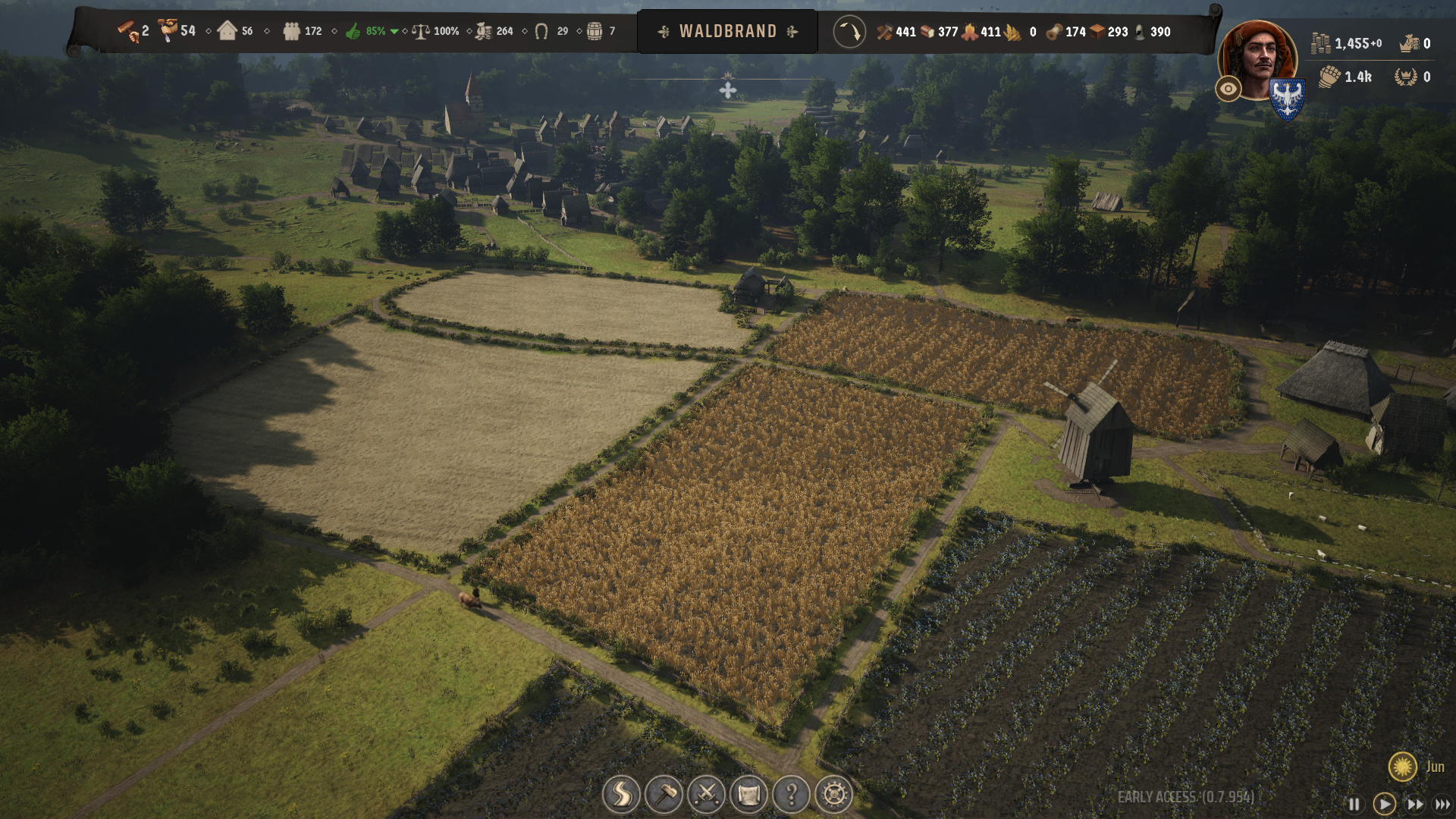
While there isn't necessarily a single genre you can associate with being a cosy game, certain games lend themselves to this mood more than others. For me, the games I've usually associated with cosy gaming have been peaceful strategy and adventure games - SimCity 2000, Civilization, Sam & Max Hit the Road, and the Monkey Island series. Sim and management games also fit the "cosy" label - Dungeon Keeper, Stardew Valley and Theme Hospital all fit the mold. Everyone's list will be slightly different, but there is always a consistent theme - deeply engaging, steady pacing and stress relief.
Village builders, such as The Settlers, Knights & Merchants, and Banished are uniquely suited for the cosy game label, not only for their mechanics but also the themes of the gameplay. These titles are all about providing your villagers with warm homes and a good supply of food - exactly the sort of thing you want when you play one of these games. It's comfort by proxy - tending to the needs of my villagers is tending to my own needs. In Manor Lords, developer Greg Styczeń has delivered another great addition to the cosy game library.
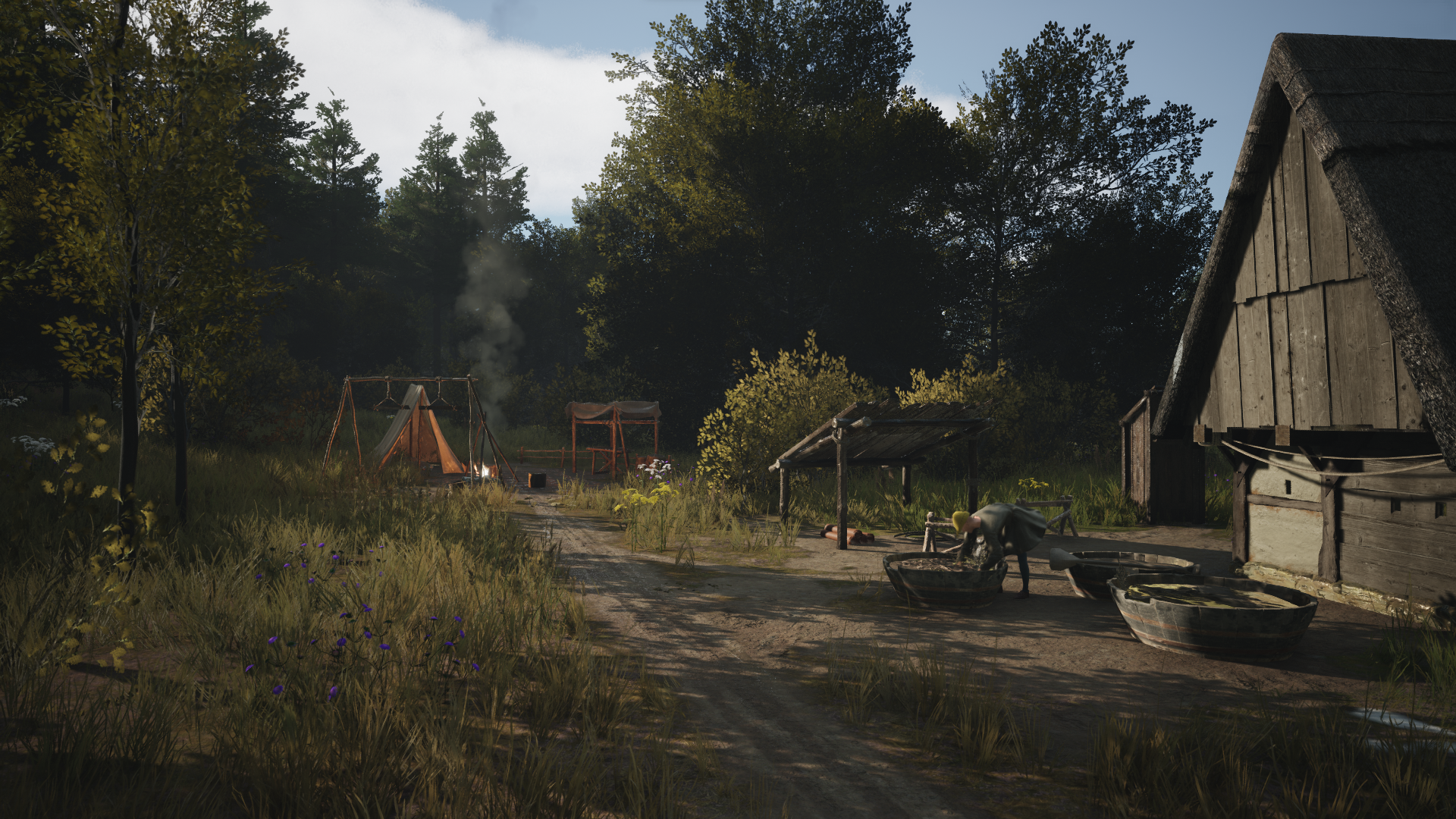
Serfs up!
In case you've been living under a rock for the past couple of months, Manor Lords is the creation of Polish developer Slavic Magic - a studio consisting mostly of solo developer Greg Styczeń. Much has been made of the fact that Manor Lords is a single-person passion project, as well as a bit of debate on the technicalities of what constitutes a "solo" developer. That's mostly irrelevant though, because despite the assistance that Styczeń has received from grants and some motion capture work from his childhood friends, the fact remains that this game couldn't have happened without Styczeń's singular dedication over many years.
Manor Lords was released in early access on 26 April and instantly surpassed expectations. Scarcely more than 24 hours after release, it had sold a million copies across all available platforms (Steam, Xbox PC, GOG and Epic Games). This was even more impressive given its availability on Xbox Game Pass - rather than trying it out with a one-month subscription, many players committed to a full-price purchase.
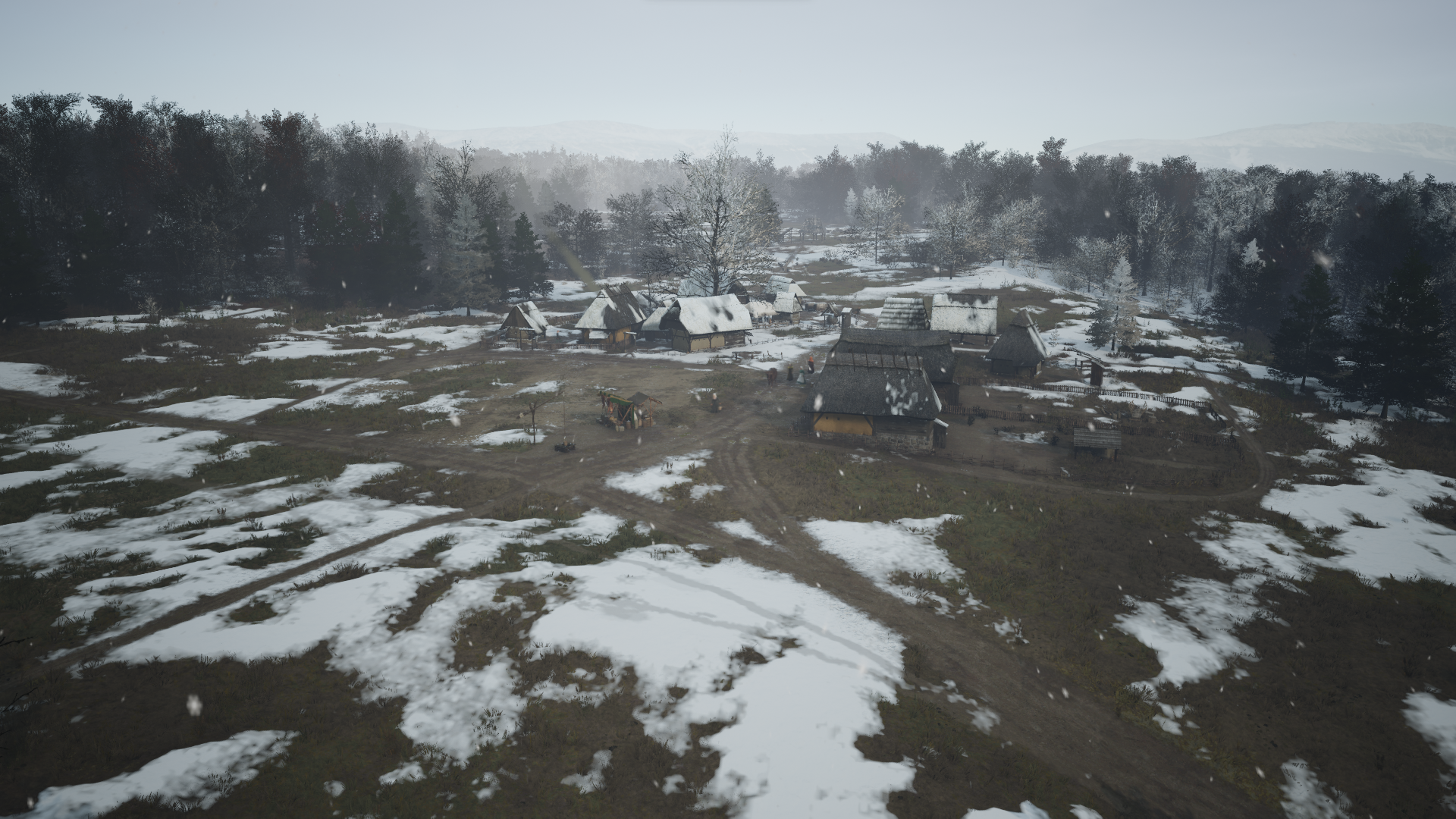
Manor Lords is a medieval village management simulator. As a local lord, your goal is to see to the needs of your villagers, who start out with little more than a few tents, a pile of logs, and an ox. From these humble beginnings, your goal is to establish a thriving medieval community with steady production of food and commodities, trade and entertainment. Like other games of its type, Manor Lords is a game about balancing a variety of interrelated systems to form steady supply chains that will allow your village to continue growing at a sustainable rate.
The basics of resource management will be familiar to players of the genre - your first priorities will be securing a source of food (via hunting and/or gathering) and securing a source of basic construction materials with the logging camp. Another immediate priority at the start of the game is a storehouse and granary to protect your food and materials from the elements. Lastly, before winter arrives, you'll want to have homes for your villagers and a good supply of firewood to keep them warm.
After you tend to basic needs, you can start to interact with the more complex systems of Manor Lords - farming, mining, production of commodities and trade. The systems underlying resource management in Manor Lords are simple and elegant, but when combined, they take on an additional layer of complexity. You'll need to consider the placement of buildings for villager route optimisation, and several resource chains rely on the same resources, so you'll need to balance supply to each chain. As your village grows, so will your industrial capacity, but each additional villager also consumes food and firewood - expand too quickly, and you may be dealing with starvation.
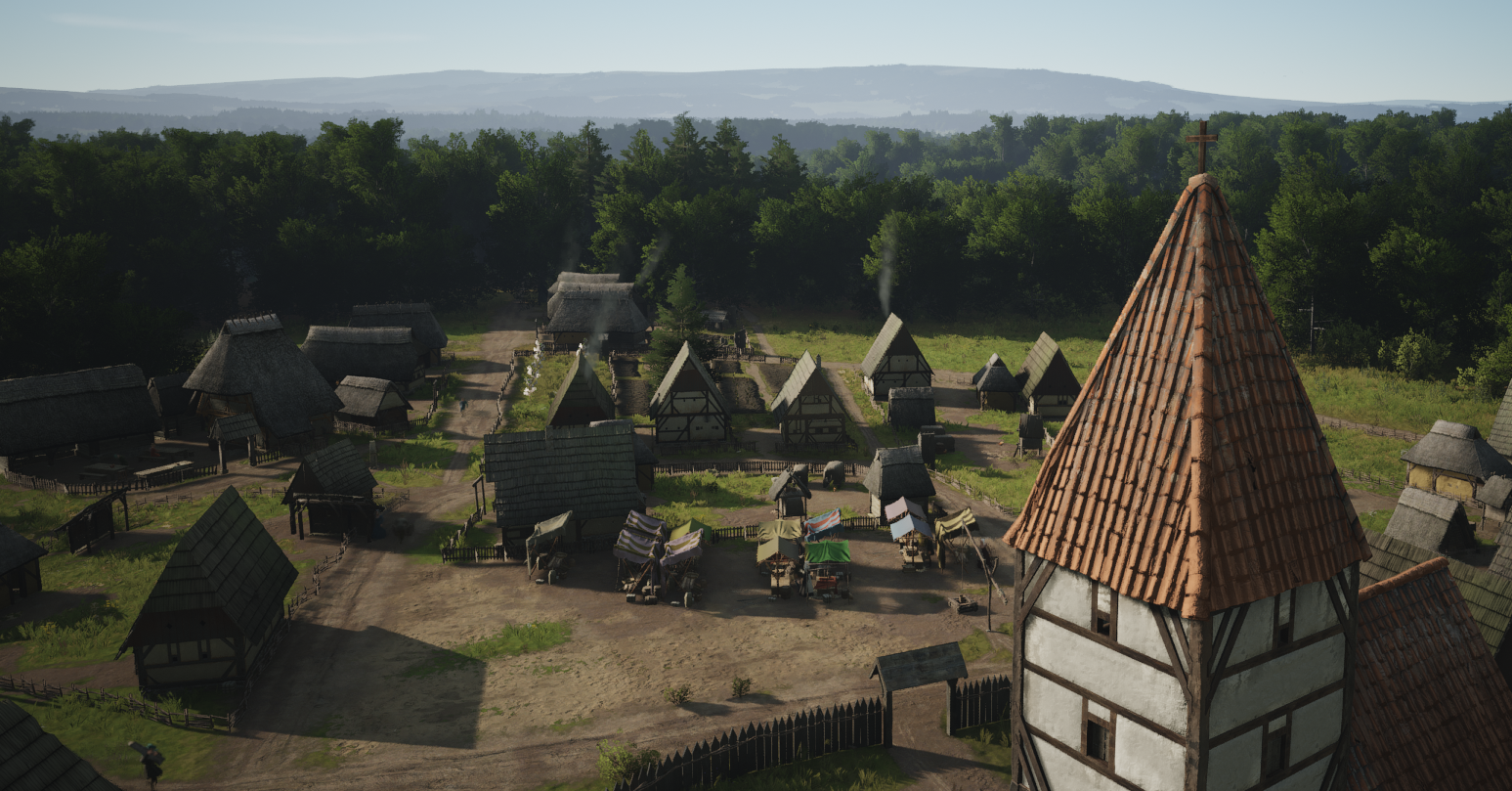
To arms!
For the moment, there is only one map in Manor Lords, divided into eight regions. Each time you start a game, your starting location and available resources are randomised. Starting in a region with high soil fertility means you'll want to lean more heavily into farming, while an excess amount of iron will allow you to expand your production of weapons and armour. If your region is abundant in mining resources, then it is unlikely to have high soil fertility, so you'll need to export your goods and use the funds to import food to sustain your town.
As your village expands, you can use the titular Manor building to raise money and regional influence, through taxes and church tithes respectively. Your treasury is used to expand and upgrade your retinue troops, while influence is used to claim other regions on the map. Once you've claimed a second region, you can then use your treasury to fund settlers to establish another village.
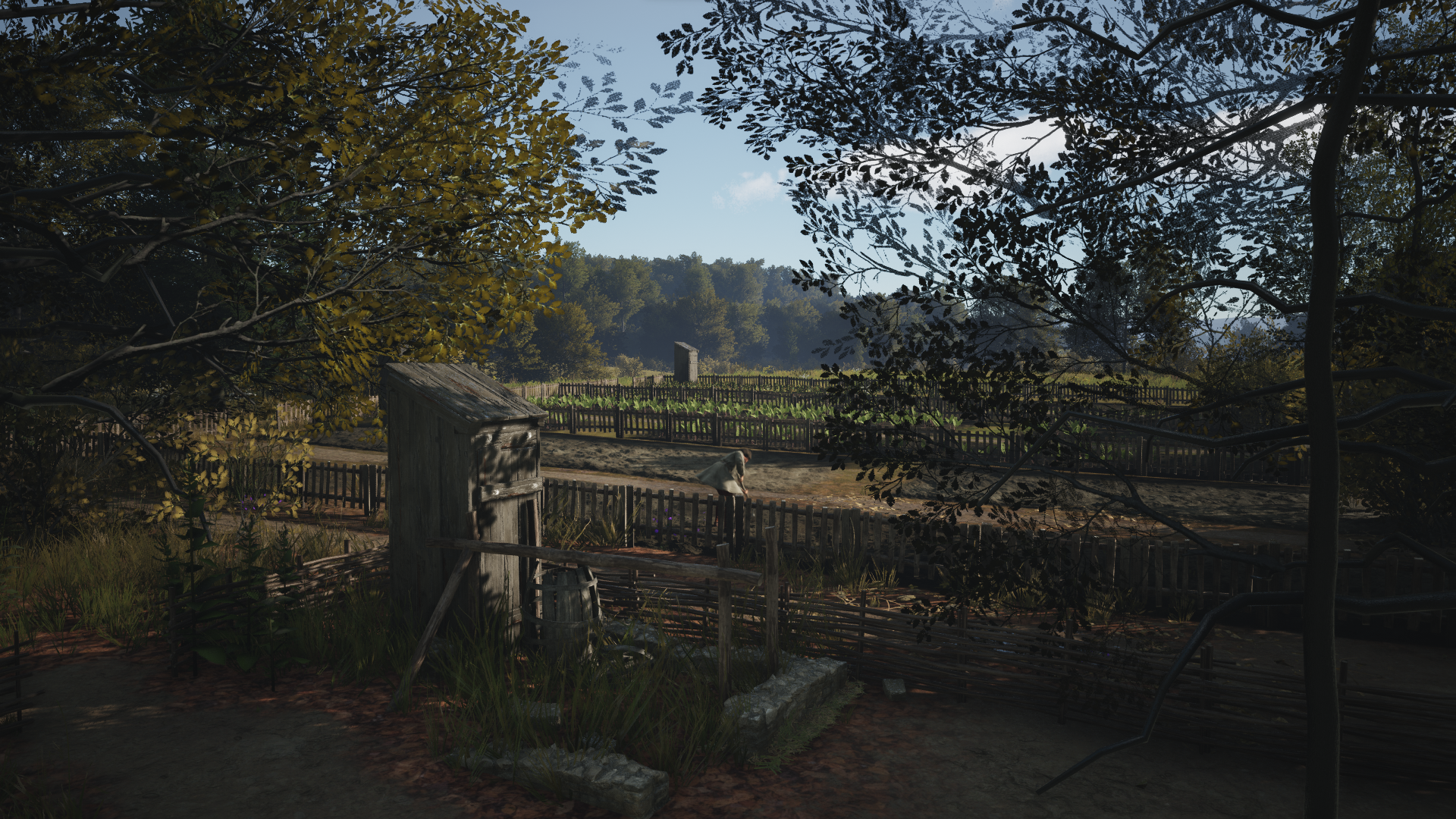
Game options allow Manor Lords to be played as a peaceful city builder if you like, but if you want to test out the Total War-style combat, you can add bandits and/or a rival lord to the map. At this early stage in development, the rival lord will only claim territory and march troops around - they don't have an on-map village like you do. Bandits on the other hand will establish small camps in unclaimed regions, and will occasionally raid your supplies until they are destroyed.
Should you decide to take the fight to your opponent, you'll need to rally your villagers, but even here, resource management comes into play. Every villager that you raise for battle needs a weapon and equipment, so you'll need to either produce or import enough to arm your troops. Additionally, every villager you call into battle is a resident of your town, and if they're marching around the countryside, they're not at home tending to the farms. You'll want to avoid raising troops during harvest season when you need all hands tending the fields. Likewise, if those peasants don't return from battle, you've lost a productive member of your town. Just like in historical conflict, there are real economic consequences to warfare.
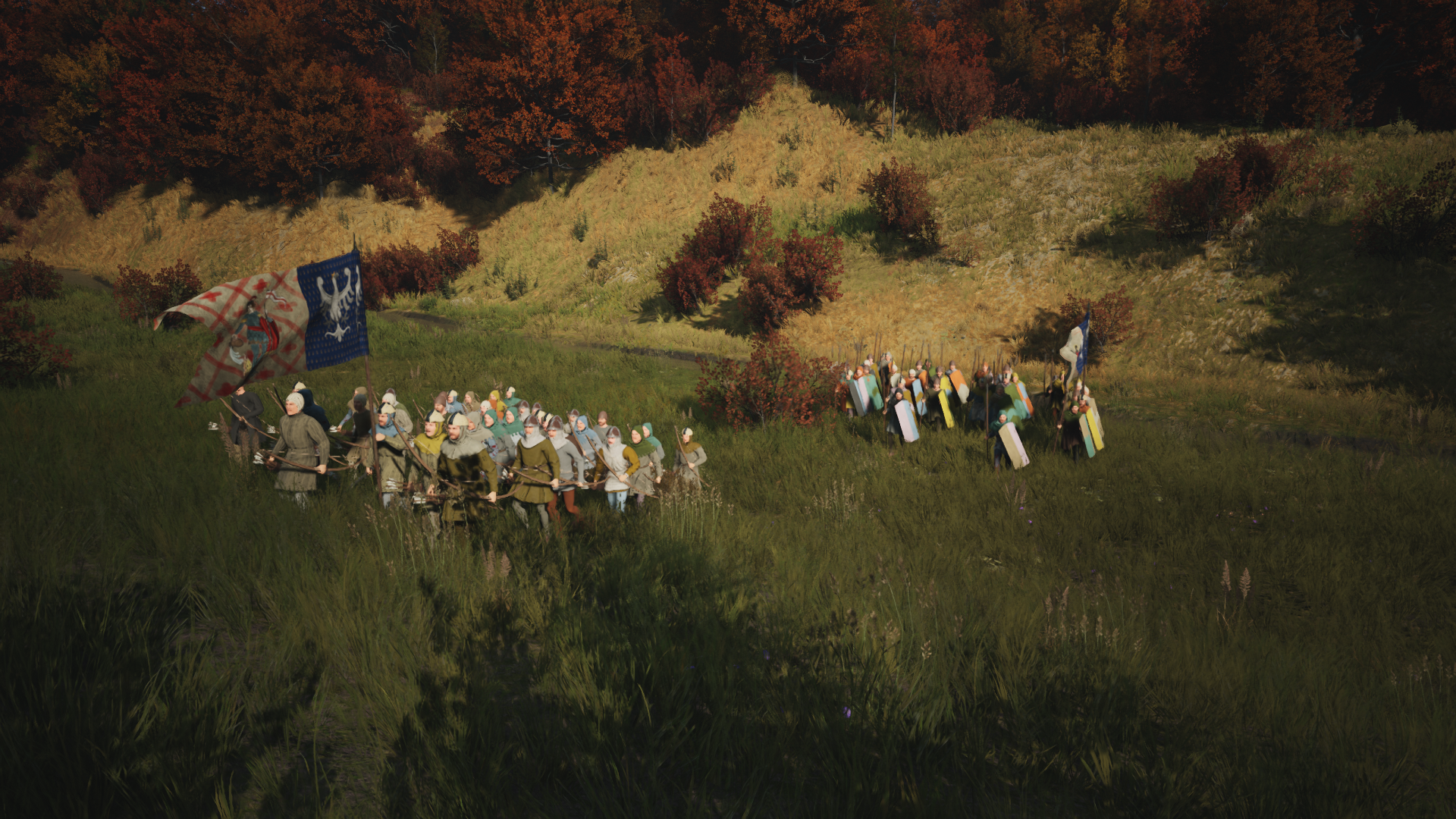
Combat will be familiar to fans of the Total War series, albeit on a much smaller scale. Battles will consist of no more than a few hundred soldiers, and you'll need to consider terrain and positioning to outwit your foe. Spearmen will hold the line while your retinue wheel around and attack the flanks, and archers can pepper the enemy with arrows as they close to melee range. Balance is wanting at this stage in development - archers are almost useless - but Styczeń is closely following feedback and has already addressed this and many other issues in the first patch. As the game receives updates, I'm excited to see the combat get fleshed out, and how large battles will impact town economies; could a Pyrrhic victory on the battlefield spell strategic defeat due to the resulting economic costs?
Managing expectations
I'm having an absolute blast with Manor Lords - it is infectiously addictive, and I've already had a handful of nights where I've stayed up far later than I intended just because I couldn't stop playing. That said, it is important to remember this is still an early access game - many of the mechanics are unbalanced and buggy, and there are certain features not implemented yet (such as livestock, the butcher and an on-map opponent). If you're expecting a feature-complete game, then Manor Lords will disappoint. However, for a fan of city builders like Banished or The Settlers, there's probably enough to keep you thoroughly engaged until the next patch. At the time of writing, I've already amassed over 60 hours, and I'm still having fun.
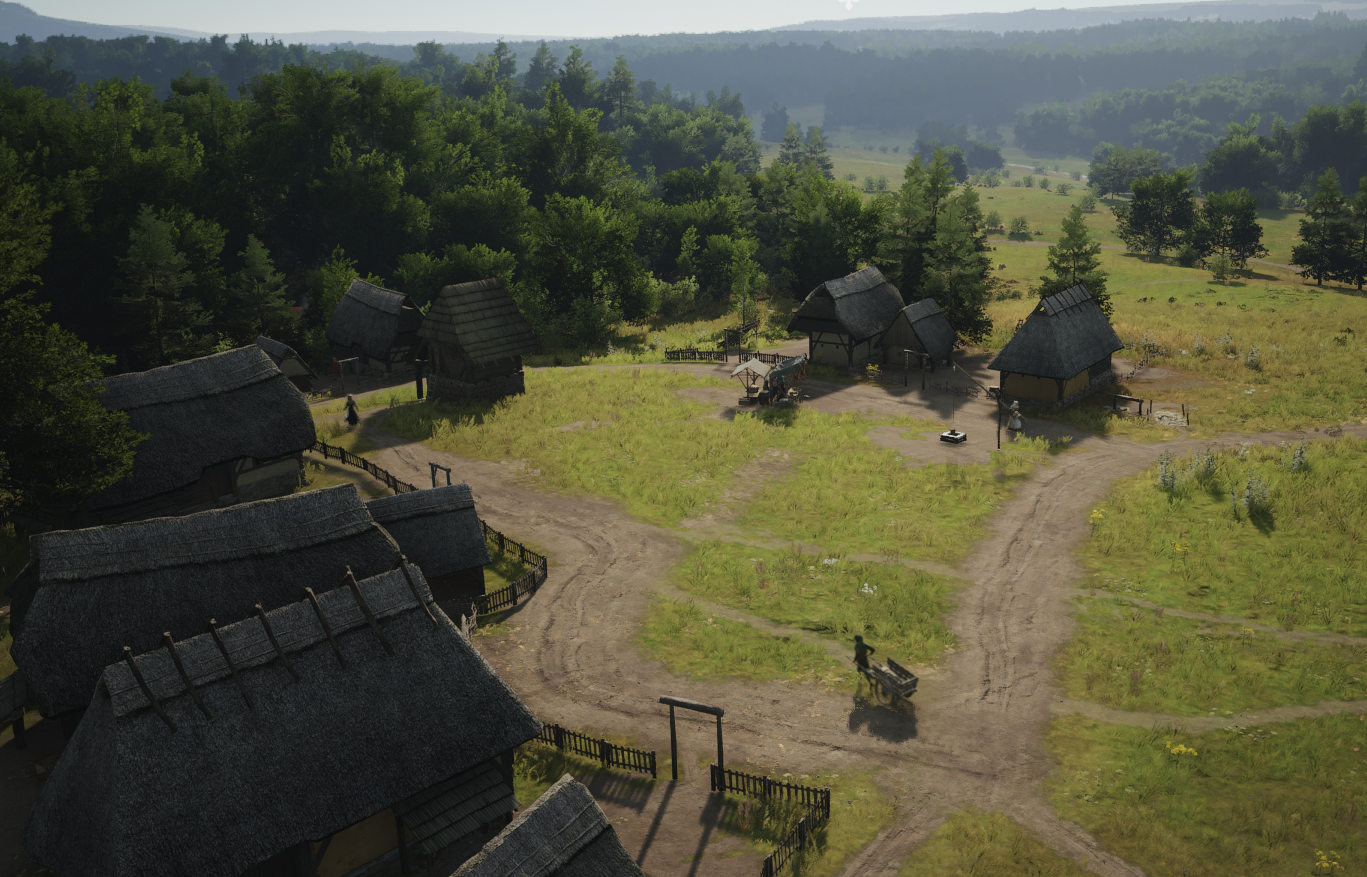
Not all the systems and mechanics are clearly communicated yet, and the game lacks any real tutorial, so you'll likely need to rely on various online guides or YouTube tutorials. That said, Manor Lords is one of those rare titles where I have enjoyed failing, and each time I restart, I feel like I'm learning a little bit more.
The game is already impressive in its level of graphical fidelity. Manor Lords is an utterly beautiful game, and Styczeń has demonstrated exactly why the Unreal Engine is so omnipresent in gaming when a solo developer can create something so visually impressive.
Most of all, however, Styczeń's creative vision for the game is clear even at this early stage. Though the game is lacking in some features and content right now, there are already solid foundations in place, and it's clear that future updates to Manor Lords are only going to improve what is already a brilliant Early-Access release.